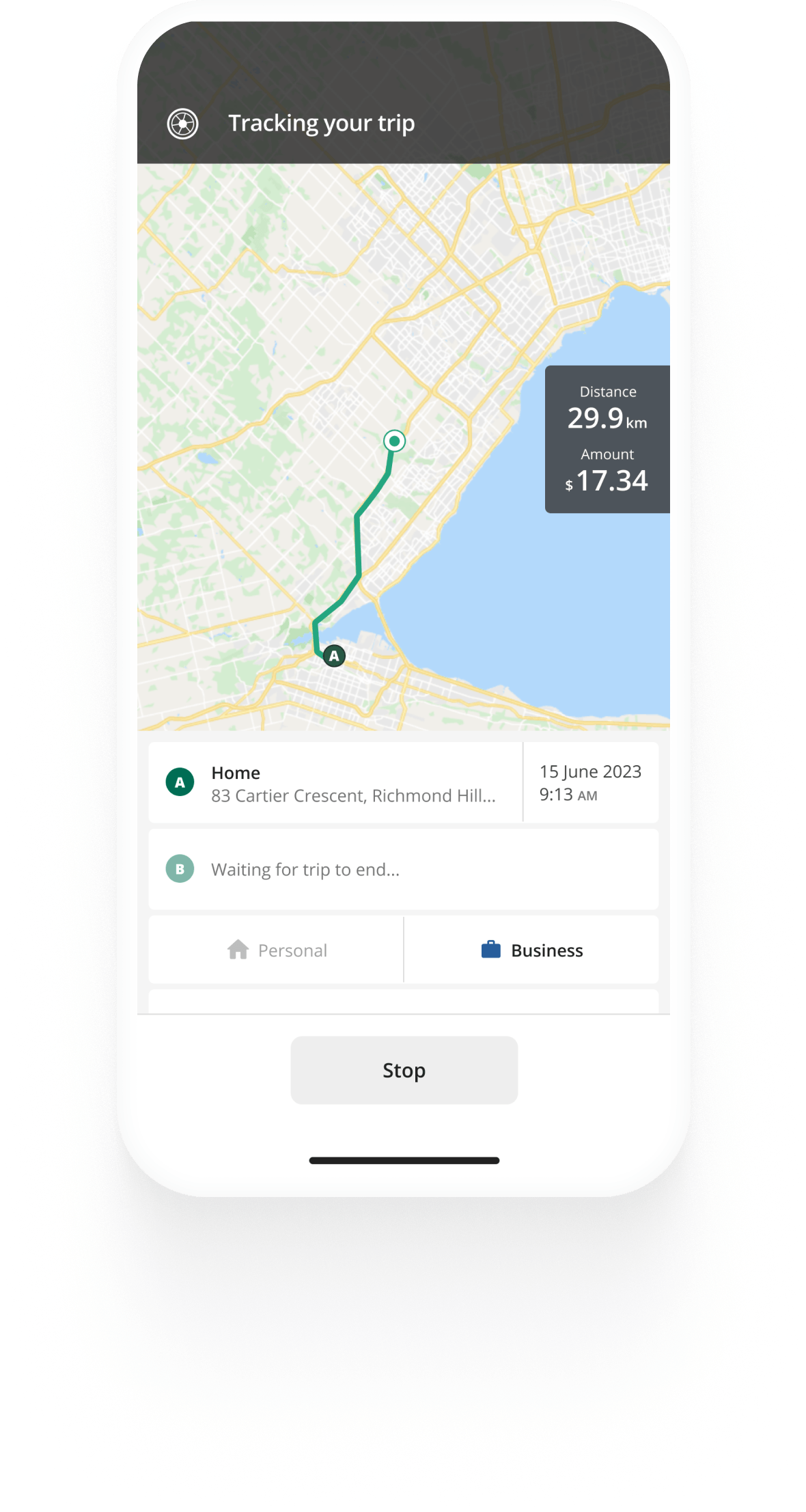Track mileage automatically
Get startedBusiness-Use-of-Home Expenses
If you’re self-employed and work from home, you may be eligible to claim business-use-of-home expenses you’ve incurred.
If you’re an employee, head to our Home Office Expenses article to see how you can claim your work-from-home deduction.
Eligibility criteria for the self-employed
If you’re a freelancer, an independent contractor, or a business owner, you can claim business-use-of-home expenses for your workspace - provided you comply with either of the following conditions:
- Your home office is your principal place of business, or
- You use your home office specifically to earn a business income, and you use it on a regular and ongoing basis to meet customers or clients.


Track business driving with ease
Trusted by millions of drivers
Automate your logbook Automate your logbook

Automatic mileage tracking and CRA-compliant reporting.
Get started for free Get started for freeExpenses you can claim
You can deduct the following home expenses against your business income:
- Electricity
- Heat
- Water
- Repair and maintenance costs
- Home insurance
- Rent
- Cleaning supplies
- Internet fees
- Property taxes
- Mortgage interest
- Capital cost allowance
- Office supplies and phone expenses used for business (entered in a separate section in Form T2125)
Additionally, you may also be able to claim:
- Mortgage interest
- Principal mortgage payments
- Furniture costs
- Other capital expenses incurred for business purposes, such as Capital Cost Allowance (on Form T2125)
How to calculate business-use-of-home expenses
You can deduct business-use-of-home expenses based on the proportion of your home's total area used for work (measured in square metres or square feet).
Calculate the proportion of your workspace
For example, if you work in a room that’s 5m long and 8m wide, the area of your workspace will be 40 m2.
Once you’ve worked out the area of your workspace, you can calculate the percentage of your home that’s being used for work by using this formula:
(Size of your workspace / Total size of your home) * 100
Let’s assume your home is 400 m2 in total. This means you use 10% of it as your workspace (40/400 *100).
You will be able to claim 10% of your eligible home expenses.
Calculating deductions for a shared space
If you use a part of your home for both business and personal purposes, you can calculate the deductible expenses for your business by following these steps:
- Calculate business use hours: Determine how many hours you use the shared room for business each day.
- Calculate daily business use: Divide the business hours by 24 (total hours in a day).
- Determine the business expense proportion: Multiply this result by the total home expenses for the business portion.
Adjust your claim as needed if your business operates for only a part of the week or year.
Example formula
If you use a shared room for business for 8 hours a day, you need to multiply the result by the business part of your total home expenses.
Let’s say you accrue business-use-of-home expenses of $200 monthly.
Daily business use: 8 hours ÷ 24 hours = 0.33
Monthly business home office expense: 0.33 × $200 = $66
Limits to your deductions
You can only deduct home office expenses up to the amount of your business net income. This means you can't use these expenses to turn a profit into a loss or make an existing loss bigger.
You can deduct the lesser of the following amounts:
- Any amount you carried forward from the previous year, plus the business-use-of-home expenses you incurred in the current year
- The amount of net income (loss) after adjustments
How to claim
You only need to fill in relevant sections in Part 7 of Form T2125 (Statement of Business or Professional Activities) to claim your business-use-of-home expenses.
Deadline for claiming CRA home office expenses
If you or your spouse run a business, the tax filing deadline is extended to June 15, instead of the usual April 30 date.

Tired of logging mileage by hand?
Effortless. CRA-compliant. Liberating.
Small Business Tax Guide
- How Much a Small Business Can Make Before Paying Taxes
- Small Business Tax Rates
- GST/HST for Small Businesses
- Small Business Tax Deductions in Canada
- Small Business Tax Credits
- Business-Use-of-Home Expenses
- How Long You Should Keep Business Records
- Managing Prepaid Expenses
- Self-Employed Tax Breaks
- Self-Employed and Small Business Tax Dates